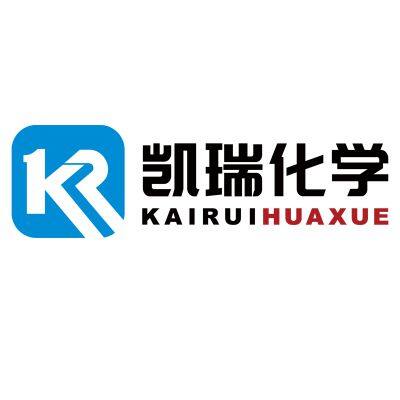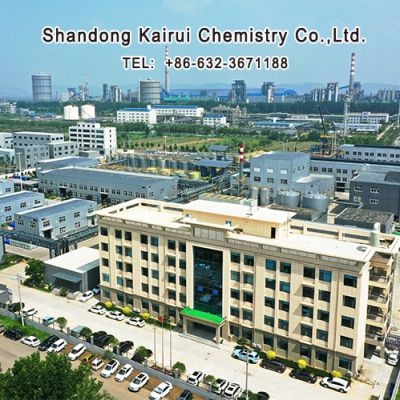Home > Products > Phosphonates Antiscalants, Corrosion Inhibitors and Chelating Agents > What are volatile corrosion inhibitor chemicals?
What are volatile corrosion inhibitor chemicals?
- 99999 Chain / Chains per Month
- QINGDAO,SHANGHAI
- T/T L/C D/P D/A Credit Card PayPal Cash Escrow Other
- 15 days
You May Like
-
Can the antiscalant ATMP be used in daily chemicals?
-
How to protect Antiscalant ATMP
-
Scale master reverse osmosis antiscalant/Antiscalant
-
What is the application of HEDP in cleaning agents?
-
What safety measures should be taken during the transportation of ATMP?
-
What are the solubility and stability of HEDP?
Product Details
| Brand Name | Shandong Kairui Chemistry Co.,Ltd. | Place of Origin | China | |
| Model Number | Phosphonates Antiscalants, Corrosion Inhibitors and Chelating Agents | Type | Carbon Black | |
| EINECS No. | https://www.krwater.com/01-HEDP.htm | Other Names | https://www.kairuiwater.com/hedp.htm | |
| Usage | Coating Auxiliary Agents, Paper Chemicals, Rubber Auxiliary Agents, Surfactants, Textile Auxiliary Agents, Water Treatment Chemicals |
Product Description
Volatile Corrosion Inhibitors (VCIs) are chemicals that help protect metal surfaces from corrosion by emitting vapor-phase inhibitors that settle on the surface and form a thin protective film. Unlike traditional liquid corrosion inhibitors, VCIs work by vaporizing into the surrounding environment and forming a protective layer on exposed metal surfaces, preventing corrosion without direct contact with the metal itself.
How VCIs Work:
Vapor Phase Action: VCIs evaporate into the air around the metal surface and are carried by the air to the metal, where they condense and form a protective layer.
Protection Mechanism: The volatile molecules in VCIs interact with the metal surface, creating a passivating film that prevents the metal from reacting with moisture, oxygen, or corrosive gases like chlorides or sulfur compounds in the environment.
Long-Term Protection: The thin protective layer is typically non-permanent, but it can provide corrosion protection for extended periods, depending on the concentration of the VCI in the air and environmental conditions.
Common Types of Volatile Corrosion Inhibitor Chemicals:
VCIs are available in a variety of chemical formulations, typically containing organic amines, amines, carboxylates, or esters, which are chosen for their ability to interact with specific metals and environmental conditions.
Amines:
Amines are often used as VCIs because they have basic nitrogen atoms that can bond to metal surfaces, forming a protective layer. Examples include alkyl amines and fatty amines.
Example chemical: Octadecylamine (C18H37NH2).
Carboxylates:
These compounds contain carboxyl groups (-COOH) and are effective at forming protective layers on metal surfaces by chelating with metal ions and forming a stable complex.
Example chemical: Sodium benzoate or potassium carboxylates.
Esters:
Esters with long carbon chains are often used in VCI formulations, especially in corrosion inhibitors for packaging and industrial storage. They release volatile compounds that interact with metal surfaces.
Example chemical: Methyl stearate or ethyl acetate.
Amines and Carboxylic Acids:
Some VCIs are combinations of amines and carboxylic acids. These compounds offer both protection against acidic and basic conditions and act as surface active agents to protect metals like steel, copper, and aluminum.
Example: 2-mercaptobenzothiazole (MBT) or Benzotriazole (often used for copper alloys).
Types of VCIs and Their Applications:
VCI Papers and Films:
These materials are treated with VCI chemicals and are used to wrap or line metal parts to prevent corrosion during storage or shipment. They are commonly used in shipping and storage of automotive parts, machinery, and electronics.
VCI Powders and Sprays:
VCIs can also be applied in powdered form or as aerosols to protect metal surfaces during periods of inactivity or transport. This form is commonly used in heavy equipment, machinery, and marine applications.
VCI Foams:
These are used in packaging systems for sensitive electronic components and metals, especially for remote or long-term protection.
VCI Bags and Pouches:
These bags are used for storing individual metal parts and are made from a material infused with VCIs. They provide localized protection during transportation or warehouse storage.
Advantages of VCIs:
No Direct Contact Needed: Unlike traditional corrosion inhibitors that require direct application to the metal surface, VCIs provide protection in enclosed spaces without the need for direct contact.
Non-toxic and Environmentally Friendly: Many VCIs are non-toxic and do not contain hazardous substances like heavy metals, making them safer to handle and use.
Long-Lasting: VCIs can provide long-term protection for up to a year or more, depending on environmental conditions and the specific VCI used.
Ease of Use: Easy to apply through packaging, such as VCI films, bags, or papers, making them suitable for storage, transportation, and maintenance.
Common Applications of VCIs:
Packaging of metal parts: Often used in the transportation and storage of automotive parts, electronics, steel products, and machinery.
Industrial equipment protection: Protecting pumps, motors, and generators during inactivity or storage.
Marine environments: Protection of metal parts in boats, ships, or marine equipment exposed to salty and humid conditions.
Military and aerospace applications: Used in protective packaging for sensitive components exposed to harsh environments.
Summary of Volatile Corrosion Inhibitor Chemicals:
VCIs release vapors that settle on metal surfaces, forming a protective layer that prevents corrosion.
Common chemical components include amines, carboxylates, and esters.
VCIs are applied via papers, films, powders, foams, or bags for easy handling.
Applications include packaging, equipment storage, and corrosion protection in industrial, military, marine, and aerospace settings.
Advantages include non-contact application, long-term protection, and safety.
In summary, volatile corrosion inhibitors are an effective way to protect metals from corrosion, especially in storage or shipping, by emitting vapor-phase inhibitors that create a protective layer on metal surfaces without requiring direct application.
Contact Us

- Shandong Kairui Chemistry Co., Ltd.
Product Categories
New Products
-
How does HEDP work in water treatment?
-
The mechanism of action of ATMP as a corrosion inhibitor and scale inhibitor
-
The mechanism of action of HEDP as a corrosion and scale inhibitor
-
Application of HEDP in daily chemicals
-
Application of ATMP in daily chemicals/ATMP Manufacturers
-
What is the specific application of HEDP in metal corrosion protection?
-
HMDTMPA/Water Treatment Chemicals/Corrosion Inhibitors/HMDTMPA Manufacturers
-
How to package copper corrosion inhibitor TTA.Na
-
In what fields can ATBS.Na be applied?
-
In what fields can PBTC.Na4 be applied?
-
OA-12/Lauryl Dimethyl Amine Oxide/Ammonyxao/Cationic surfactant
-
In what areas can PESA be used?
Popular Searches
- food additive
- water treatment
- concrete admixture
- Concrete Additive
- rust inhibitor
- sodium gluconate
- superplasticizer
- water reducing agent
- hedp
- construction chemicals
- retarder
- scale inhibitor
- gluconic acid
- anti-rust oil
- retarder admixture
- tolyltriazole
- Acid Corrosion Inhibitor
- Chemical Scale Corrosion Inhibitor
- Water Treatment Corrosion Inhibitor
- washing powder
- water softener
- Dispersing Agent
- concrete admixture
- organic fertilizer
- chemical additives
- sodium tripolyphosphate
- sodium gluconate
- edta 2na
- eddha fe
- corrosion inhibitor
Recommended Products
- Modified HEMC for Cement-Based Tile Adhesives – 30-Minute Open Time & Excellent Slip Resistance
- MK200P High-Viscosity HPMC for Tile Adhesives with Excellent Slip Resistance
- 39660-17-8 Pool Winterizing Longlife Algaecide for Blue-Green Algae Maintenance CTX Controller Algicide
- Non-Irritative Metal Free Polyquats Algaecide 60 Biocide Polixetonium Chloride Wscp for Swimming Pool CAS 31075-24-8
- Copper Pool Algaecide for Swimming Pool 90 Day Algaecide for Inground Pool to Prevent and Remove Pool Algae
- Algae Control for Fish Tank & Freshwater Aquarium Poly[Oxyethylene (dimethyliminio) Ethylene (dimethyliminio) Ethylene Dichloride] 5.4% 31512-74-0
- HB-630HIFULL Industrial Grade SiO2 Nano Silica Smoke White Carbon Black HB-630 Hydrophobic Fumed Silica Powder Reinforcing Agent
- HB-620 HIFULL HB-620 Anti-Sagging Agent Hydrophobic SiO2 Fumed Silica Powder Silicon Dioxide for Coating Rubber Manufacturer Price
- HIFULL Factory Price HL-380 Pharmaceutical Grade Anti-Caking Agent Colloidal Anhydrous Silicon Dioxide (SiO2) Rubber Powder
- HL-300 HIFULL Factory Price HL-300 Pharmaceutical Silicon Dioxide Hydrophilic Fumed Silica Powder Colloidal Anhydrous Sio2
- HL-200 Amorphous Hydrophilic Nano Sio2 Powder 112945 52 5 Silicon Dioxide HL-200 for Adhesive Coatings UPR Fumed Silica
- Gamma Alumina catalyst carrier/support
Find Similar Products By Category
- Chemicals > Chemical Auxiliary & Catalyst > Chemical Auxiliary
Product Tags:
- Please Enter your Email Address
- Please enter the content for your inquiry.
We will find the most reliable suppliers for you according to your description.
Send Now-
 sales
Welcome to my shop, I'm glad to serve you. Please feel free to send me any questions you may have.
sales
Welcome to my shop, I'm glad to serve you. Please feel free to send me any questions you may have.
Your message has exceeded the limit.
- Contact supplier for lowest price
- Customized Request
- Request Sample
- Request Free Catalogs
Your message has exceeded the limit.
-
Purchase Quantity
-
*Sourcing Details
Your inquiry content must be between 10 to 5000 characters.
-
*Email
Please enter Your valid email address.
-
Mobile



